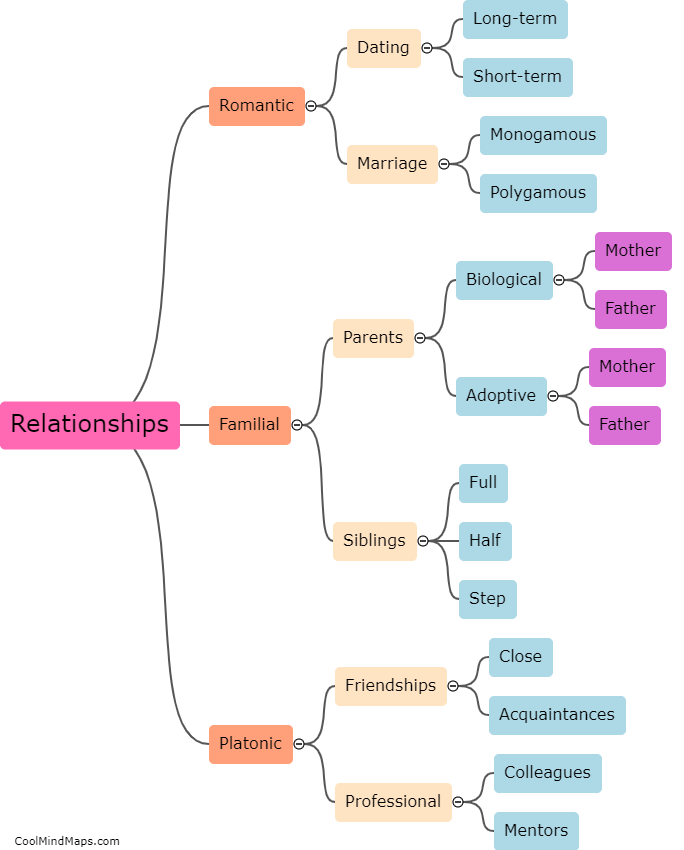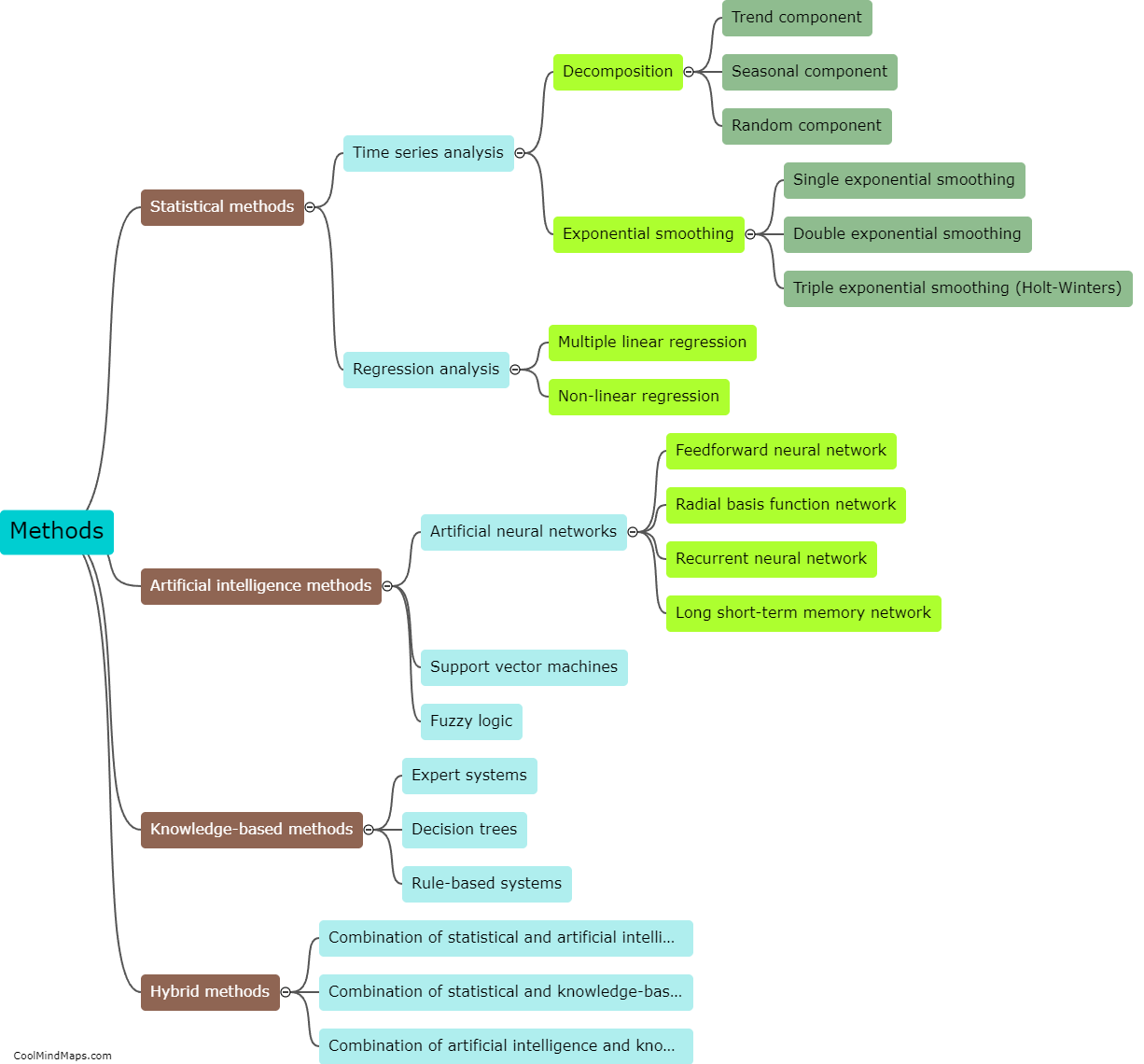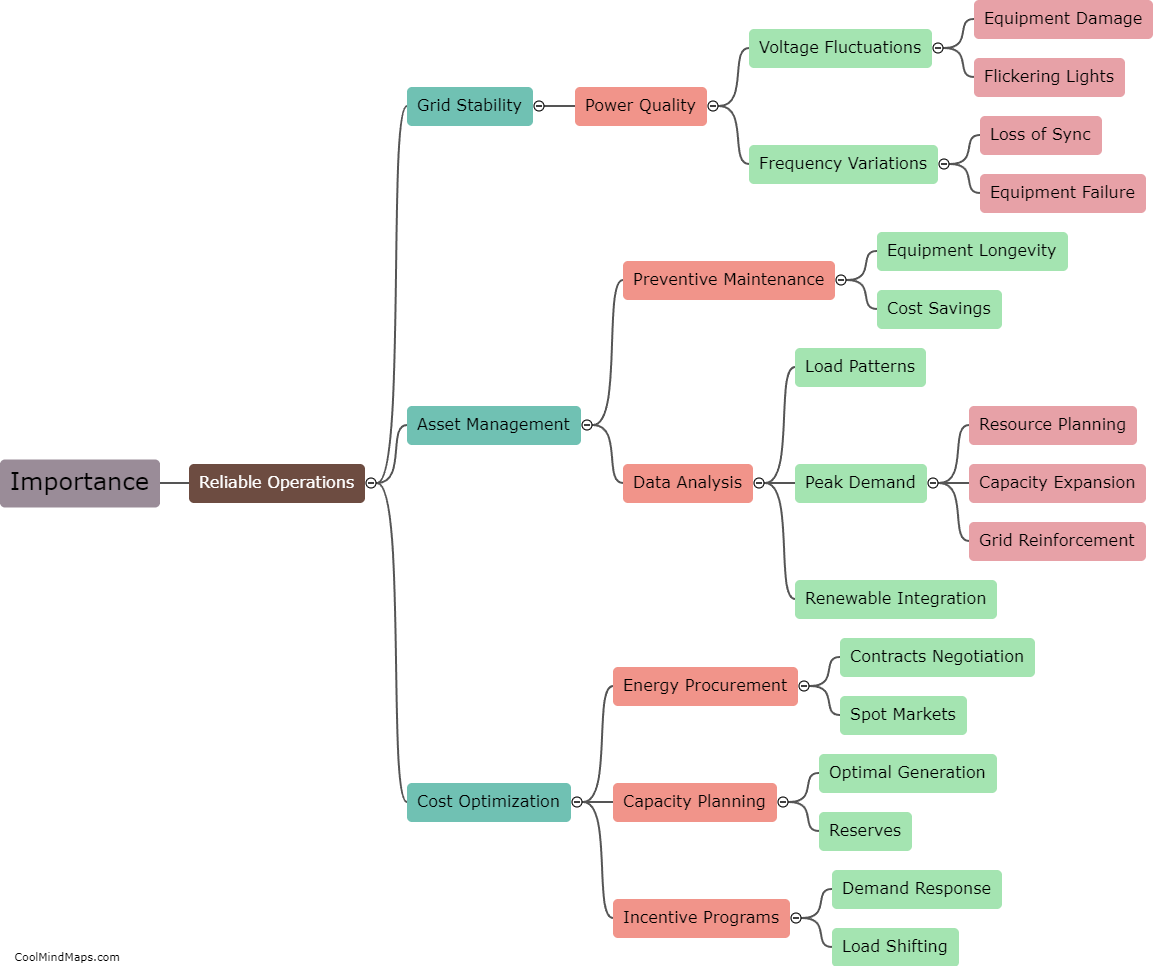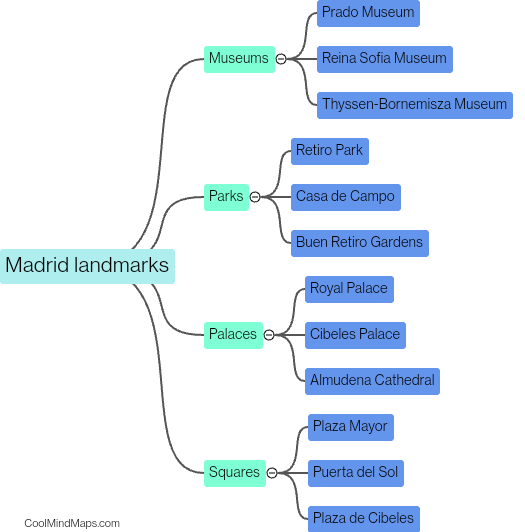What factors influence short load forecasting?
Short load forecasting, the process of predicting the demand for electric power over a short-term period, is influenced by numerous factors. One of the key factors is weather conditions, as temperature variations affect heating and cooling demands. Additionally, economic factors such as industrial production, consumer behavior, and economic growth can play a crucial role. Furthermore, special events like holidays, concerts, or sports events can significantly impact short load forecasts due to changes in electricity consumption patterns. Other variables include population changes, time of day, day of the week, and geographic location, all of which influence the accuracy of short load forecasting models. By considering and analyzing these factors, utility companies can enhance their forecast accuracy, optimize their power generation, and effectively manage their resources.

This mind map was published on 26 October 2023 and has been viewed 102 times.











